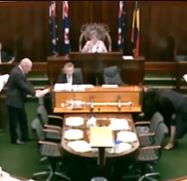Members and Officers
Business of the House of Assembly
The business of the House of Assembly is carried out in accordance with its Standing and Sessional Orders and Rules, which are based on the practice of the English House of Commons and derive their authority from the State Constitution Act. The Speaker is the chair of proceedings and it is his or her responsibility to enforce the rules with fairness and impartiality.
The Standing Orders provide the framework within which the House functions. They cover all of the proceedings of the House including election of Speaker, Opening of Parliament, Sitting and Adjournment of the House, Records of the House, Order of Business, Petitions, Motions, Questions, Amendment, Rules of Debate, Divisions, Messages between Houses, Bills, Committees, Accounts and Papers, Conferences, Contempt and so on. In any case not provided for in the Standing Orders, or where there is no clear precedent, resort is had to the practice of the House of Commons.
In 1983 the Standing Orders were amended to make provisions for a 'closure', that is, to enable the House to set a maximum time limit for debate on a particular matter. Time limits on individual speeches had previously existed but debate on a matter could last for long periods of time and this was often the cause for late or all-night sittings. The closure, or 'guillotine' as it is more commonly known, can reduce debate on any matter to three hours, although a longer time can be allowed if the House makes that decision.
The House normally first meets in March each year and its sittings are usually held from that time to May and then from August to December. The House meets at 10 am and normally adjourns at 6 pm.
Sitting Times
House of Assembly meets on Tuesday, Wednesday and Thursday at 10.00 am.
Sessional Orders - Relating to Sitting Times
(1) The time for the ordinary meeting of the House shall be at Ten o'clock a.m. on Tuesdays, Wednesdays and Thursdays, and adjournment of the House shall be at Six o'clock p.m.
(2) Whenever this House or a Committee of the whole House shall be sitting at the time specified for the adjournment in accordance with clause (1) of this Sessional Order, the business then before the House shall stand adjourned.
(3) A Motion for the adjournment of the House may be made at any other time, but not to interrupt any business then before the House, and may only be moved by a Minister.
(4) When the House adjourns in accordance with clause (2) of this Sessional Order or the adjournment is moved in accordance with clause (3) of this Sessional Order, the Speaker shall then call for adjournment issues, when any member may speak to any matter for seven minutes.
(5) After these issues have been debated for a maximum period of one hour, the House shall stand adjourned, without Question being put, until the next sitting day.
Suspension of Sitting.
27. - (1) If at One o'clock p.m. the House or a Committee of the Whole House be sitting, the Sitting of the House or Committee shall be suspended until half-past Two o'clock p.m.
Question Time

Question Time is held every sitting day except opening day. It begins shortly after commencement of each day's sitting and lasts for one hour. This is the period of the day which is of most interest to visitors, when the widest possible range of subjects receives vigorous attention. Standing Order 94 says in part Questions may be put to Ministers of the Crown relating to public affairs, and to other Members relating to any Bill, Motion, or other public matter connected with the business of the House, in which such Members may be concerned... '. Nearly all questions are directed to ministers and most come from non-government members.
Adjournments
In recent years the practice by opposition members of moving the adjournment to discuss matters of public importance has become much more common. Whereas this method of bringing a matter before the House for discussion might have been used only two or three times a year in the early 1970s and before, it is now used much more often. Members may give notice of the issue they wish to debate, and one subject shall be debated on Tuesdays and Wednesdays, with time set aside for two on Thursdays.
Private Members Business
Private Members business is dealt with by a system of party rotation from 3.30 to 6 pm on Wednesdays. The remaining time each day is for government business which it calls on at its discretion.
Laws are enacted by introducing a bill into the House, it being agreed to and passed, the same in the Legislative Council, and finally receiving the Royal Assent from the Governor. Any Member may introduce a bill into Parliament, though most are brought in by Ministers, and most originate in the House of Assembly.
Bills
The first step in the formal consideration of a bill is the first reading, when the Clerk reads out the long title of the bill. The long title is the full title of a bill which sets out the purpose and scope of the bill. Printed copies are circulated to each Member and to interested organisations or persons outside Parliament.
When two days have elapsed after its circulation to members, the bill is ready for the Second Reading, which is considered to be the most important stage. The member who introduced the bill moves that it 'be read the Second Time', and in doing so he or she explains the principles of the proposed change in the law. All other members are then entitled to give their views on the general principle involved and after debate has concluded and all members have had opportunity to express themselves on the subject, the Speaker puts the question - 'That the bill be now read a Second time'. If the motion is not agreed to, it means that the House does not accept in principle this proposed alteration to the law and the bill is not proceeded with.
If the motion is carried, the House endorses the bill in principle, and then proceeds to what is known as the Committee stage. The Speaker leaves the Chair and the Chair of Committees then presides. The bill is considered clause by clause and amended where necessary. The procedure during this stage is less formal than at other times, and speeches are shorter and confined to detail. After the last clause has been approved, the bill has been passed in principle and in detail, and the Third Reading concludes the Assembly's dealings with it. The Third Reading, like the First, is largely a formality and debate rarely takes place..
The next stage is the transmission of the bill to the Legislative Council, where the same procedures are adopted..
Both Houses have legislative powers under the Constitution, and these powers can be summarised by the following rules.:
All bills must be passed by both Houses otherwise there is no effect on the law..
Financial bills must originate in the House of Assembly on the recommendation of the Governor. The Legislative Council's powers are set out by the Constitution Act 1934;
Money Bills, defined as those that appropriate revenue funds or levy income or land taxes, may not be amended by the Council. However the Council may request that the Assembly make amendments.
Other financial measures may be amended by the Council but not by inserting any provision for the appropriation of money or by imposing or increasing any burden on the people.
Other public bills may originate in either House, and may be amended by both Chambers. The amendments of each House must be agreed to by the other of course, otherwise the Bill is not passed. When one House makes amendments to a bill which has already passed the other, a message is sent notifying the House of origin to this effect. If agreement cannot be reached then the bill will not proceed.
When a bill has been passed by both Houses, it is necessary for the Governor, as the Sovereign's representative in Tasmania, to give the Royal Assent.
When all three parties to the legislative process - the House of Assembly, the Legislative Council and the Governor- have approved a bill, it becomes an Act, and thus part of the law of the State. Once made, an Act can be amended or repealed by means of another bill.
Law-making is one of the fundamental activities of the House. Another is the moving of a motion to pass a resolution or order of the House. A motion is a device for producing a decision of the House either in the form of an opinion or an order that certain action be taken. Many motions are moved to gain information, for example that certain documents be tabled, but those motions which express opinions vary from congratulations on the occasion of a Royal wedding to a no-confidence motion against the Government which, if passed, would bring about its downfall. The latter most recently occurred in 1989.
Quorum
The business of the House can only be conducted if a quorum is present. The number of members required for a quorum is fourteen, including the Speaker. When at any stage of a day's proceedings a member brings the Speaker's attention to the absence of a quorum, the Speaker orders that the bells be rung to summon members to the chamber. If, at the expiration of five minutes a quorum is not present, the Speaker adjourns the House until the next appointed sitting time.
Committees
Parliamentary committees are established for different purposes and by different methods. Three are established by statute and are made up of members of both Houses. They are the Public Works, Public Accounts and Subordinate Legislation Committees. Other Standing Committees are appointed to regulate some of the functions of the Parliament joint committees, e.g. House and Library Committees, and select committees of the House of Assembly, e.g. Standing Orders, Privileges and Printing Committees.
From time to time the House sees the need to appoint a select committee to inquire into a specific matter and report back to it. Generally such a report would be the basis for future legislation in the area investigated by the committee. These committees can be select committees of the House only or joint select committees made up of members of both Houses.
